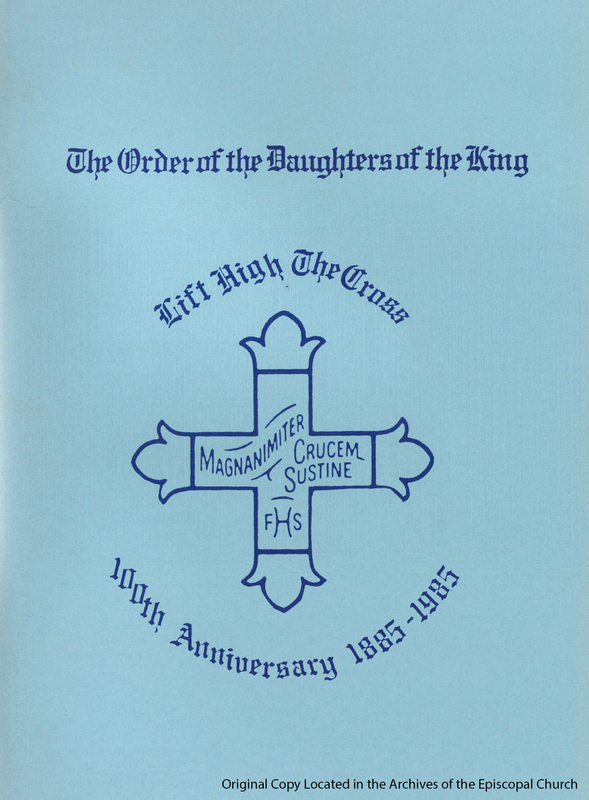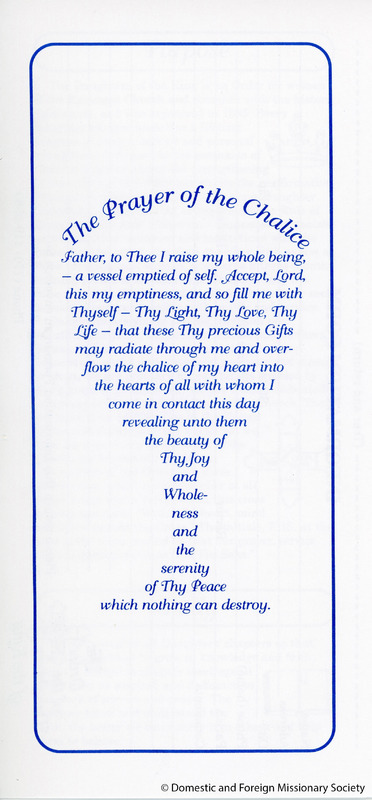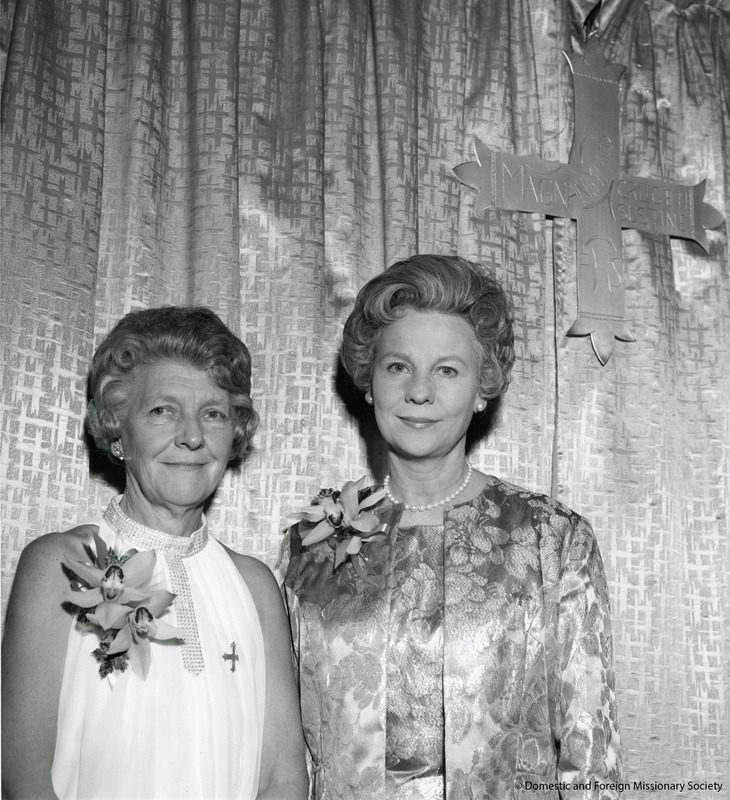Order of the Daughters of the King
The Order of the Daughters of the King, an international organization for Episcopal and Anglican women and women who are members of churches in the historic episcopate, has its roots in the 19th century evangelical movement. The group is affiliated with the Brotherhood of Saint Andrew, which developed at the same time and for much the same purpose: a daily, prayerful devotion to spreading the gospel of Christ.
The Order grew from a Bible class for young women at the Church of the Holy Sepulchre in New York City in 1885. Organized by Margaret J. Franklin and with the support of the parish rector, the class adopted a rule that prayer should be offered to God “every day of their lives.” To fulfill this mission, the Daughters focused their efforts on bringing other women into the church, welcoming newcomers to the parish and keeping in touch with them in order to strengthen their ties to the church community. Soon other parishes asked to be affiliated with the Order of the Daughters of the King, and by 1889 six chapters had been formed. By 1896, membership in the Order totaled 11,697 women.
The Episcopalian roots of the Order are evident not only in its rules, which include submission to episcopal authority and use of the Book of Common Prayer, but in its structure, which mirrors that of The Episcopal Church. Individual Daughters form chapters and are further organized by Diocese and Province to form a National Assembly, which meets triennially at the same time as General Convention. True to the Anglican tradition, international chapters of the Order are free to organize themselves after the patterns of their own institutions. Currently, there are Order of the Daughters of the King chapters in 21 countries.
As a centennial history of the group notes, the Order of the Daughters of the King was not intended to join the ranks of aid societies and Auxiliaries; it “started at once on the highest plane” as a semi-religious Order. Its stated mission, “The extension of Christ’s Kingdom through Prayer, Service and Evangelism,” is explicitly vague in defining “service,” explaining that each woman is called by prayer and discernment to the area of service to which she is most suited, whether that is witnessing the Gospel or founding a soup kitchen.

Commemorative centennial history of The Order of the Daughters of the King, 1985.


